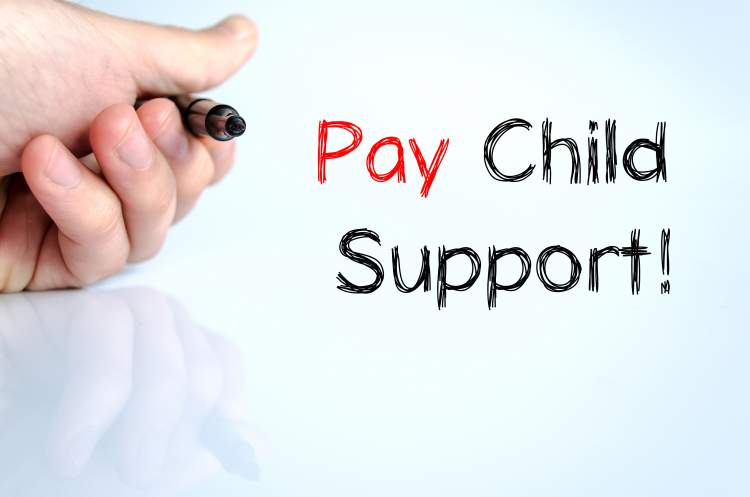In Texas, a non-custodial parent is expected to pay child support until the child reaches 18 years of age. Failure to pay current or back child support can lead to property liens, driver’s license suspension, lawsuit filings, incarceration and more.
Back Child Support Statute of Limitations

If a parent does not pay child support, the state can calculate interest on all back support at a rate of 6 percent every year. This means that the longer a parent avoids paying child support the more the money that parent will owe.
The Statute of Limitations on Texas Child Support
In this article, there needs to be a determination of whether you are trying to…
- Enforce an EXISTING child support order, i.e., no child support has been paid on an existing child support order, or
- Get the court to order RETROACTIVE child support, i.e., no child support order was ever created.
If there is an existing child support order, Texas Family Code 157.005 applies.
Statute of Limitations on the Enforcement of an Existing Child Support Order
Sec. 157.005. TIME LIMITATIONS; ENFORCEMENT OF CHILD SUPPORT. (a) The court retains jurisdiction to render a contempt order for failure to comply with the child support order if the motion for enforcement is filed not later than the second anniversary of the date:
(1) the child becomes an adult; or
(2) on which the child support obligation terminates under the order or by operation of law.
(b) The court retains jurisdiction to confirm the total amount of child support arrearages and render a cumulative money judgment for past-due child support, as provided by Section 157.263, if a motion for enforcement requesting a cumulative money judgment is filed not later than the 10th anniversary after the date:
(1) the child becomes an adult; or
(2) on which the child support obligation terminates under the child support order or by operation of law.
If the court has not already issued a child support order, then Texas Family Code 154.131 applies.
Statute of Limitations on Retroactive Child Support in Texas
Sec. 154.131. RETROACTIVE CHILD SUPPORT. (a) The child support guidelines are intended to guide the court in determining the amount of retroactive child support, if any, to be ordered.
(b) In ordering retroactive child support, the court shall consider the net resources of the obligor during the relevant time period and whether:
(1) the mother of the child had made any previous attempts to notify the obligor of his paternity or probable paternity;
(2) the obligor had knowledge of his paternity or probable paternity;
(3) the order of retroactive child support will impose an undue financial hardship on the obligor or the obligor’s family; and
(4) the obligor has provided actual support or other necessaries before the filing of the action.
(c) It is presumed that a court order limiting the amount of retroactive child support to an amount that does not exceed the total amount of support that would have been due for the four years preceding the date the petition seeking support was filed is reasonable and in the best interest of the child.
(d) The presumption created under this section may be rebutted by evidence that the obligor:
(1) knew or should have known that the obligor was the father of the child for whom support is sought; and
(2) sought to avoid the establishment of a support obligation to the child.
(e) An order under this section limiting the amount of retroactive support does not constitute a variance from the guidelines requiring the court to make specific findings under Section 154.130.
(f) Notwithstanding any other provision of this subtitle, the court retains jurisdiction to render an order for retroactive child support in a suit if a petition requesting retroactive child support is filed not later than the fourth anniversary of the date of the child’s 18th birthday.
Penalties for Unpaid Child Support
Your employer may withhold the child support amount from your income after they receive an order from the Child Support Division. This is what is called wage garnishment.
Wage garnishment guarantees that the amount is paid. Another penalty is asset interception, which is when the Child Support Division intercepts any funds a non-custodial parent wins in a lottery or the amount from a federal tax refund.
The division may also file a lien against any of the personal property of the parent. Depending on the situation a court can hold a parent in contempt for not paying child support and sentence the parent to six months in jail.
You may also be interested in…
- Texas Child Custody Laws
- How long does divorce take in Texas?
- My Houston Divorce Lawyer Reviews
- Child Protective Services Attorney
- What does it cost to get divorced in Texas?
How to Avoid a Retroactive Child Support Suit
Raising a child is expensive and emotionally demanding. This is why child support amounts can be very high for a parent that did not pay their fair share for the support of a child.
You can avoid paying back support by making actual payments to the primary parent or purchases on behalf of the child. For instance, purchasing things like school supplies and clothing can help offset the amount for back child support.
Do not pay child support in cash if you want to prove to a court that you paid the primary parent. Instead use money order, PayPal or Venmo, or a check.
This way you will be able to prove in a future dispute that you supported the child. Another way to avoid having to pay retroactive child support is by paying child support even if there is no child support order in place.
